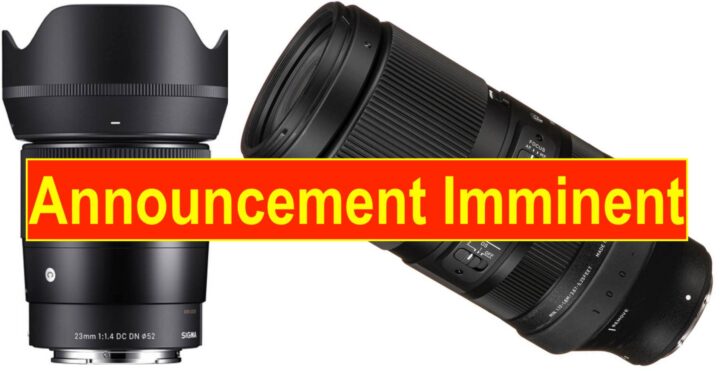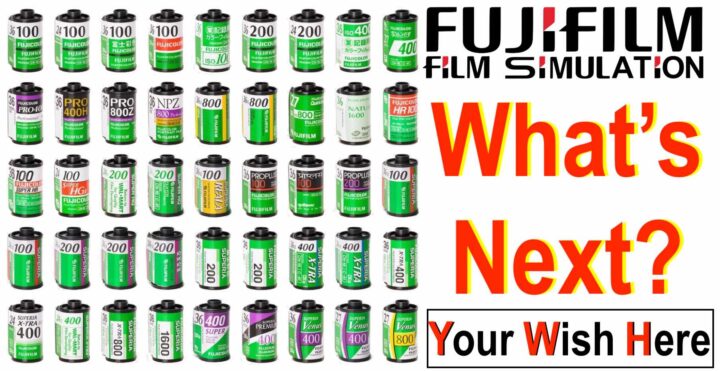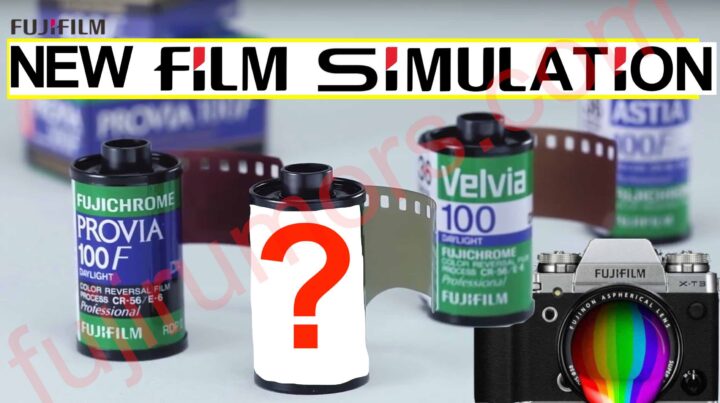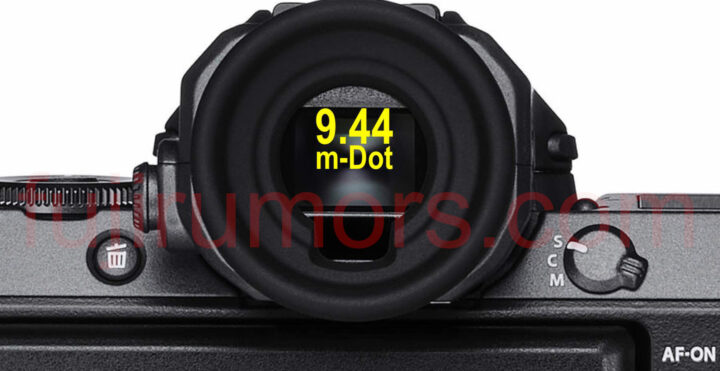Sigma 100-400mmF5.0-6.3 and Sigma 23mmF1.4 Announcement Imminent – Price Leaked and Better Specs than Sony Version

A new source contacted us via the revived rumor box (using a nickname, thanks!!!), and has passed us the information that the announcement of the Sigma 100-400mm f/5.0-6.3 and Sigma 23mm f/1.4 will happen in just a few hours.
It also gave us the following details:
- 100-400 with 5 stops stabilization (1 more than E- and L-Mount)
- 999€ (100-400) and 499€ (23mm) in Europe
Thanks to our new source for sharing this. You’ll be elevated to trusted source status in a few hours ;). Feel free to keep up using the rumor box and your nickname for future rumors, or also contact me via fujirumor@gmail.com in case you want to interact with me so we can talk rumors behind the scenes. Many thanks again!
The Sigma 23mm f/1.4 DC DN was pre-announced back in April here, whereas the Sigma 100-400mm f5.0-6.3 DG DN OS was first rumored on FujiRumors here.
- Sigma 23mm f/1.4 DC DN
BHphoto / Amazon / Adorama / Focuscamera - Sigma 100-400mm f/5.0-6.3 DG DN OS
BHphoto / Amazon / Adorama / Focuscamera
All Sigma X mount AF lenses:
- New – Sigma 23mm f/1.4 DC DN
BHphoto / Amazon / Adorama / Focuscamera - New – Sigma 100-400mm f5.0-6.3 DG DN OS
BHphoto / Amazon / Adorama / Focuscamera - Sigma 18-50mm f/2.8 DC DN
BHphoto / Amazon / Adorama - Sigma 16mm f/1.4 DC DN
BHphoto / Amazon / Adorama / Focuscamera - Sigma 30mm f/1.4 DC DN
BHphoto / Amazon / Adorama/ Focuscamera - Sigma 56mm f/1.4 DC DN
BHphoto / Amazon / Adorama/ Focuscamera



